|
Parrotfishes and surgeonfishes are important herbivores on Caribbean reefs, but did you know that they also consume fish feces (a behavior known as coprophagy)? Master’s student Hannah Rempel discovered that they some species regularly consume the feces of the planktivore Brown chromis while conducting research in Bonaire last year. To better understand this novel behavior, Hannah and undergraduate Abby Siebert are are evaluating species-specific patterns of coprophagy by herbivorous fishes on Caribbean reefs. A Princess parrotfish (Scarus taeniopterus) and Blue tang (Acanthurus coeruleus) compete for a Brown chromis (Chromis multilineata) fecal pellet, circled in red. Image copyright Hannah Rempel 2019, not for use without permission. Why do they do this? Maybe for a little 'Vitamin Sea'. We theorize that the feces of planktivores may provide an important nutritional supplement to their algae-dominated diet. Last summer, Abby was awarded a Cal Poly FROST Undergraduate Research Program fellowship to study the nutritional quality of fecal samples with Hannah. She is continuing this research for her senior project, evaluating the carbohydrate, lipid, and protein and trace mineral content of Brown chromis feces, which will help us better understand the nutritional drivers of this behavior.
Want to learn more about this work? Abby gave a virtual talk at The California Central Coast Chapter of The Wildlife Society's annual symposium earlier in October and will be presenting a poster at The Western Society of Naturalists in November. Stay tuned for more updates, as moving forward Abby will continue presenting this research at scientific conferences and we anticipate a research paper led by Hannah and Abby will be forthcoming next year.
1 Comment
Yesterday, we kicked off our first socially-distanced Pismo clam survey of the Fall, led by our lab's new master's student, Marissa Bills. Our team dug, measured, and reburied 1,700 clams! By comparing changes in these data over time, we can monitor trends in Pismo clam populations to inform local management and conservation efforts. Marissa will be building on the work of recent graduate Alex Marquardt, as well as evaluating the aquaculture potential of Pismo clams.
Interested in helping with surveys? Sign up for our volunteer list here! Prefer to donate to support student research on Pismo clams? Click here! Thank you for your interest in our research! Community support helps to keep this important, local research going during these challenging times! A few years ago, Cal Poly undergraduate Emily Knighton conducted a pilot tagging study of Pismo clams as part of her senior project. She developed methods to mark them, tested finding them (with a metal washers and a metal detector!), and then marked 50 clams and put them back on the beach. A month later, we went back to look, but a series of swells had rearranged the beach. We found none, and thought they were gone forever...
...until this month, when someone found one of our marked shells, posted a picture on social media, and the social media science world helped us connect. Clam #18 was 57mm when it was tagged on Dec 8, 2018, and the shell was found on Oct 11, 2020, almost two years later! It was dead (but with hinges still attached, so probably hadn't been dead long) and it had grown to 77mm. So not only do we get a little growth data, but we have evidence that the tags will last at least 2ish years. We will try again, so stay tuned for more info. And, if you happen to find a marked clam, please let us know! Noel Clark presented a talk at the Pacific Coast Shellfish Grower Association (PCSGA) and National Shellfisheries Pacific Coast Section (NSA-PCS) joint virtual conference! Her talk "Age and growth of the Pismo clam (Tivela stultorum) in California" shared findings from her summer FROST internship and senior project. Noel was awarded an honorable mention for Best Student Presentation! Congratulations Noel! 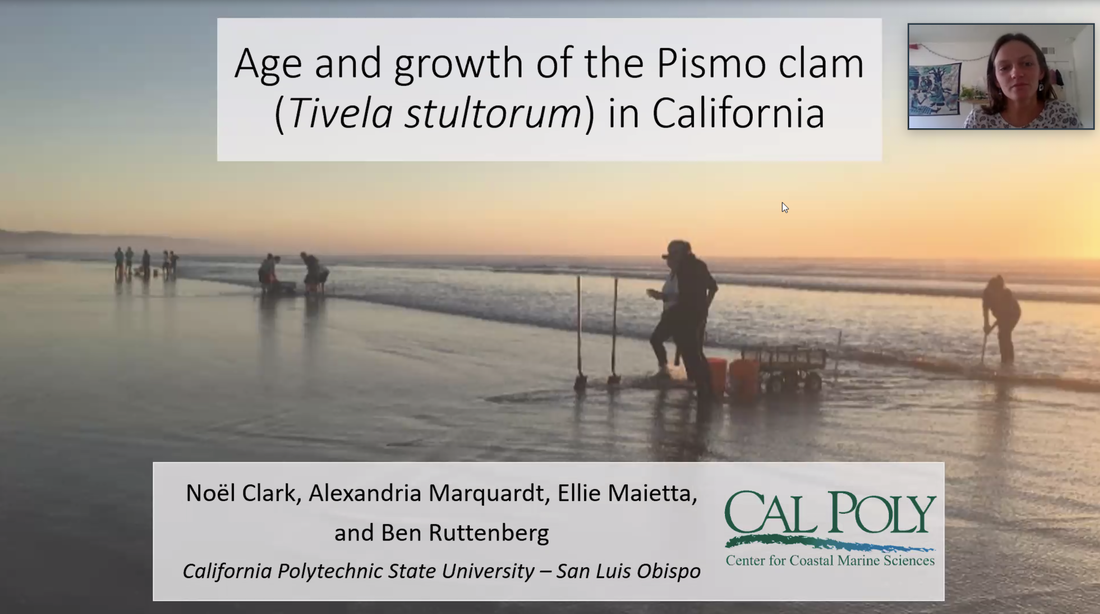 |
Well, we're a collection of science-minded marine misfits. But we're always up to something... Archives
April 2023
Categories |
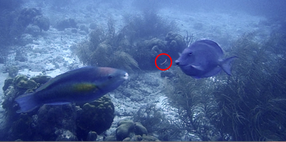
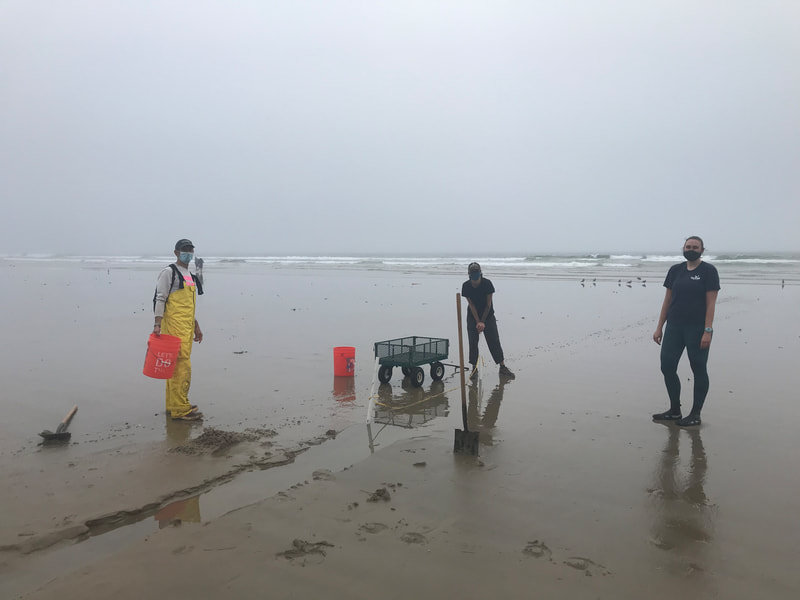
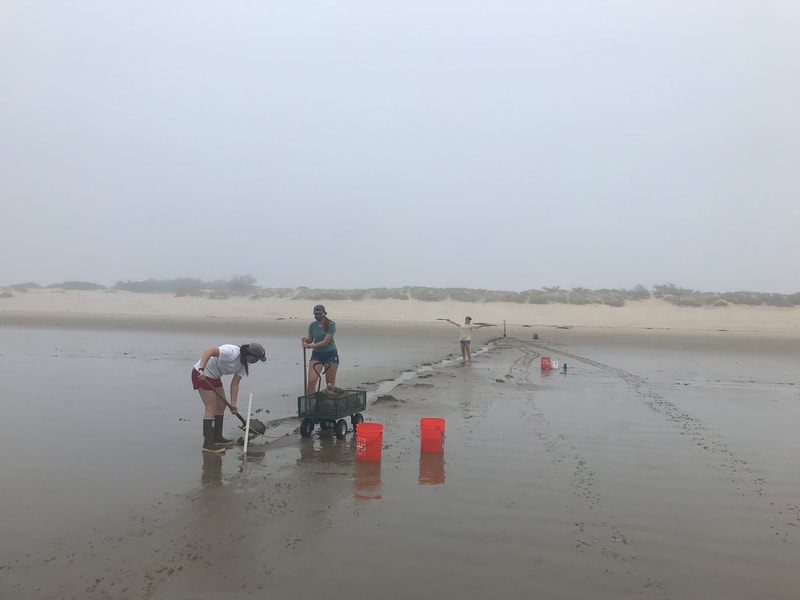
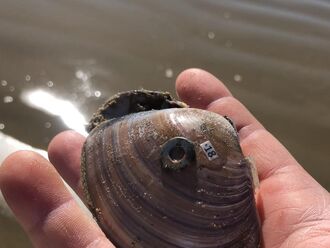
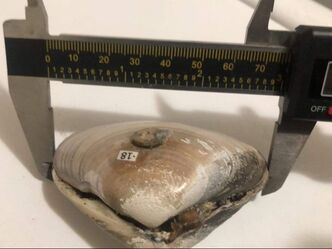
 RSS Feed
RSS Feed